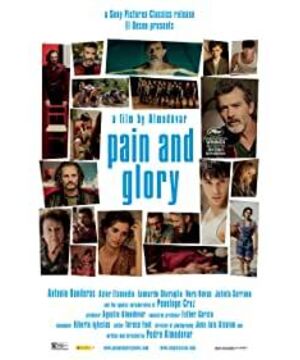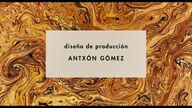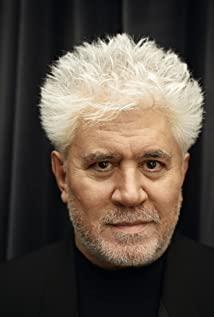The scene setting of "The Cave" is unique, and it is actually a "dramatic eye": it is not only the place of St. Anthony, the godfather of the desert, but also the womb of Freud's mother. The mother's use of St. Anthony as the patron saint confirms the validity of the "overlapping" interpretation. With the technique of meta-narrative, the narrator imagines a flawless crystal world - due to the awakening of desire, the individual leaves the desert home, and with the purification of desire, the individual returns to the mother's womb. Desire goes from being in itself to being in itself, and back to itself. The burrow is both its alpha point and its omega point. Therefore, Anthony's abstinence was to purify the mother body, and Freud's intention was to ascend to the desert. The pleasure principle and the death drive finally reach a stable equilibrium, which is Hegel's reconciliation. Almodóvar's burrow is a Hegelian theistic universe.
However, this crystalline desire logic is, after all, a fictional ideal type. Almodovar's underground caves deliberately lack the fearful and trembling "I" and unknown creatures written by Kafka, and the hysterical epilepsy patients written by Dostoevsky, because they are bound to interrupt the self-consistent logic, Expose the wounds of desire, and bury the self-monologue with the noise of many voices. The struggling St. Anthony, the turbulent maternal womb, the irreversible imprint of pain, these are all things worth cherishing. The danger of Almodovar's theism lies in the use of teleological futuristic illusion to sublate the meaning of pain itself, and the use of "glory" to reduce "pain" to a tool, and to fall into kitsch nihilism. More than 30 years of separation with co-stars, more than 30 years of relationship with lover, long-term guilt towards mother, lost paintings, original desires... All these should not be forced by theism , hurried toward reconciliation and returned to the cave.
Thinking of "The Last Temptation of Christ", there is no temptation, no struggle, no regrets, even the Jesus Christ in the mouth of Christians will be just a "phantom". If so, Hegel would point to him as he did Napoleon: look, that man, a crucified pseudo-absolute spirit. That's it.
View more about Pain and Glory reviews











